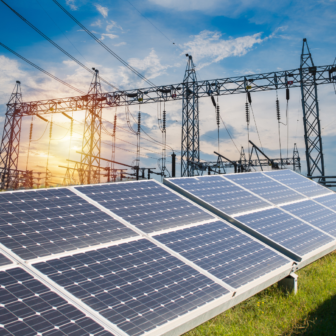The Richmond Times-Dispatch
The Virginia economy is in full-on crisis. Businesses statewide are hurting, state employees are being laid off by the thousands, and the state is cutting core services in the face of a $3 billion budget shortfall.
In this context, it’s especially difficult to accept Dominion Virginia Power’s recent decision to begin building a massive new coal-fired power plant in Wise County. The controversial plant has spawned public protests statewide. The cost alone — a whopping $1.8 billion — will actually cause the Virginia economy to shrink by another 1,500 jobs, according to official state estimates. This, while triggering more mountaintop removal mining, more global warming, and the potential for more coal-ash spills like the one that struck disastrously in East Tennessee before Christmas.
Dominion is right about one thing, though: A focus on energy can help an ailing economy. The company just has its priorities misplaced. It’s when we invest in new energy efficiency — not new energy pollution — that Virginia’s economy will see a boost. Only recently has Dominion seemed to understand this argument. Now, with the General Assembly in session, it’s time to press the point home.
Rarely in public policy debates are the numbers so stark. In the past four months, three expert panels have loudly and convincingly made the case that Virginia, like the nation as a whole, can create thousands of new jobs and generate billions of dollars in economic activity simply by adopting smarter energy-efficiency practices.
The American Council for an Energy Efficient Economy — a widely respected nonpartisan think tank — surprised many Virginia leaders last September. What if, ACEEE asked, the commonwealth simply committed to holding electricity use more or less constant — statewide — between now and 2025? Not a radical decrease in power use, mind you, just keep the electricity volume roughly the same. Answer: $11 billion in new investments would flow to the state, creating 10,000 new jobs, and saving $15 billion on consumers’ electricity bills.
Why? Because to keep demand constant over the next 16 years as the population and the economy naturally grow, Virginia would have to adopt policies that require better insulation of schools, for example, and more energy-efficient home construction. The state would need to incentivize light bulb replacements, better appliance purchases, and home “energy audits.”
Such policies, ACEEE points out, are already in place in many other states and are proven to create more jobs than a new coal-fired power plant ever will. You get a “stimulus package” now — new weatherization jobs, new energy audit companies — while helping consumers for years to come. (Every dollar spent on efficiency produces approximately $3 in reduced energy costs.)
In December, Virginia Gov. Tim Kaine’s own Commission on Climate Change — composed of technology and policy experts from across the state — explicitly endorsed the ACEEE commonsense strategy of holding electricity use steady through 2025. (This can also be expressed as a 19 percent reduction in what demand would otherwise be in 2025 without efficiency gains). Commission member Paul Ferguson of Arlington said, “Efficiency is the cleanest, fastest, cheapest way to stimulate the economy and fight climate change.” With stabilized electricity demand, every new wind farm and solar array built in the state would push an equal share of dirty, conventional power out of the grid, dropping overall greenhouse gas emissions, Ferguson said.
BUT THE FINAL home run came earlier this month in a report from Abt Associates, an independent research firm whose clients include Xerox and Dupont. The report compares efficiency not just to the costly new coal plant Dominion is now building in Southwest Virginia, but adds a critical piece: the federal cap on carbon pollution that virtually every utility in America believes is coming in the near future. This cap will by design make carbon-intensive electricity more expensive than clean alternatives. Under this scenario, reports Abt, efficiency further out-competes coal, creating jobs on a level equivalent to 100 new manufacturing companies moving to the state by 2025 and creating an energy savings of up to $1,000 per Virginia household.
But under current Virginia law, Dominion has no motivation whatsoever except to encourage more power production. Like any business, it wants to enhance its bottom line and reward shareholders. Efficiency is an absurdity under this business model. Why produce fewer widgets?
Thankfully, Sen. Donald McEachin (D-Henrico) has just introduced a bill (SB 1447) in the Virginia General Assembly that achieves the three core goals of a good efficiency policy. The bill would keep power demand mostly constant through 2025 as a matter of state mandate, not a voluntary “goal.” It would apply to aggregate annual power demand, not just “peak” use during the summer. And the bill would — by law — reward Dominion and other utilities for efficiency gains at a rate just as profitable as coal combustion. Maryland and four other states already have similar policies.
With an economy in free fall and real voters losing real jobs across the commonwealth, doesn’t this make sense? The General Assembly should pass the McEachin bill as soon as possible and Gov. Kaine should sign it.
Mike Tidwell is director of the Chesapeake Climate Action Network.




